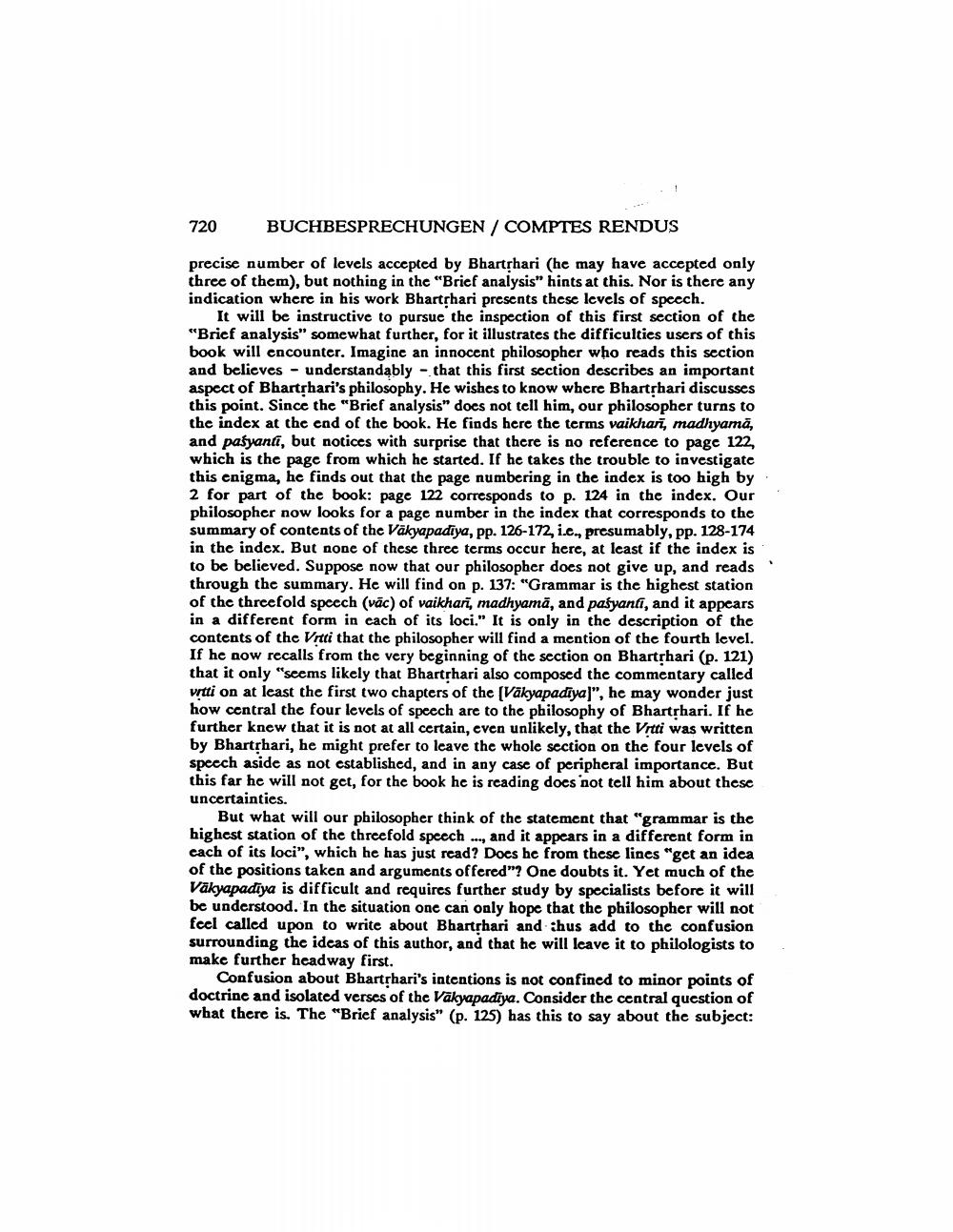Book Title: Book Review Encyclopedia Of Indian Philosophies Author(s): Johannes Bronkhorst Publisher: Johannes Bronkhorst View full book textPage 3
________________ 720 BUCHBESPRECHUNGEN / COMPTES RENDUS precise number of levels accepted by Bhartrhari (he may have accepted only three of them), but nothing in the "Brief analysis" hints at this. Nor is there any indication where in his work Bharthari presents these levels of speech. It will be instructive to pursue the inspection of this first section of the "Brief analysis" somewhat further, for it illustrates the difficulties users of this book will encounter. Imagine an innocent philosopher who reads this section and believes - understandably - that this first section describes an important aspect of Bharthari's philosophy. He wishes to know where Bharthari discusses this point. Since the "Brief analysis" does not tell him, our philosopher turns to the index at the end of the book. He finds here the terms vaikhari, madhyamā, and pasyanti, but notices with surprise that there is no reference to page 122 which is the page from which he started. If he takes the trouble to investigate this enigma, he finds out that the page numbering in the index is too high by 2 for part of the book: page 122 corresponds to p. 124 in the index. Our philosopher now looks for a page number in the index that corresponds to the summary of contents of the Vakyapadiya, pp. 126-172, i.c., presumably, pp. 128-174 in the index. But none of these three terms occur hcre, at least if the index is to be believed. Suppose now that our philosopher does not give up, and reads through the summary. He will find on p. 137: "Grammar is the highest station of the threefold speech (vāc) of vaikhari, madhyamă, and pasyansi, and it appears in a different form in each of its loci." It is only in the description of the contents of the Vrtti that the philosopher will find a mention of the fourth level. If he now recalls from the very beginning of the section on Bhartrhari (p. 121) that it only "seems likely that Bhartrhari also composed the commentary called vrtti on at least the first two chapters of the (Vākyapadiyal", he may wonder just how central the four levels of speech are to the philosophy of Bhartshari. If he further knew that it is not at all certain, even unlikely, that the Vrtti was written by Bhartphari, he might prefer to leave the whole section on the four levels of specch aside as not established, and in any case of peripheral importance. But this far he will not get, for the book he is reading does not tell him about these uncertainties. But what will our philosopher think of the statement that "grammar is the highest station of the threefold speech ..., and it appears in a different form in cach of its loci", which he has just read? Docs hc from these lines "get an idea of the positions taken and arguments offered"? One doubts it. Yet much of the Vākyapadiya is difficult and requires further study by specialists before it will be understood. In the situation one can only hope that the philosopher will not feel called upon to write about Bharthari and thus add to the confusion surrounding the ideas of this author, and that he will leave it to philologists to make further headway first. Confusion about Bharthari's intentions is not confined to minor points of doctrine and isolated verses of the Vākyapadiya. Consider the central question of what there is. The "Brief analysis" (p. 125) has this to say about the subject:Page Navigation
1 2 3 4 5 6 7 8
